Salvia (also known as Red Sage) has been traditionally used in Asia for thousands of years to promote blood and remove blood stasis. The root is excellent for circulation issues.
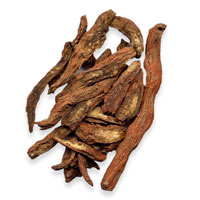
100% Traditional East Asian Herbal Medicine
With NO Fillers
Fertility Tea Herb Pack

Salvia (also known as Red Sage) has been traditionally used in Asia for thousands of years to promote blood and remove blood stasis. The root is excellent for circulation issues.
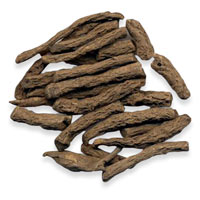
 Curculigo is a Traditional Chinese medicinal herb that is known for its ability to eliminates dampness, strengthens bones and muscles, supports a healthy sexual response. One of the best herbs at kidney yang tonifying.
Curculigo is a Traditional Chinese medicinal herb that is known for its ability to eliminates dampness, strengthens bones and muscles, supports a healthy sexual response. One of the best herbs at kidney yang tonifying.
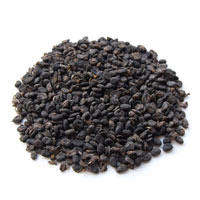
Bu Gu Zhi is used to tonify the kidneys, strengthen the yang. It benefits the Kidney channel and supports the digestive system, is warming and can relaxes smooth muscle. Together with other herbs it tonifies the Liver and Kidney deficiency to improve fertility. 
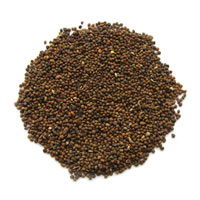
 This tiny seed gently warms the Kidney Yang, tonifies the Kidney Yin and nourishes the Liver. Its high flavonoid content improves all functions related to conception and potency.
This tiny seed gently warms the Kidney Yang, tonifies the Kidney Yin and nourishes the Liver. Its high flavonoid content improves all functions related to conception and potency.
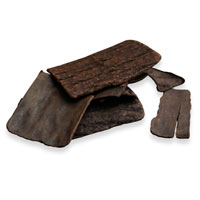
Eucommia directly enters the Kidney channel, strongly tonifies the Liver and Kidneys and working with paired herbs improves fertility and conception. 
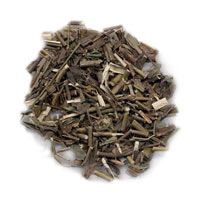
 Abundant research has been done on Bupleurum root used to treat headaches, liver cirrhosis, jaundice, common cold and irregular menstruation with pain and cramps (to name a few) in Traditional Chinese Medicine. (TCM) This medicinal has demonstrated anti-inflammatory properties, along with sedative and analgesic effects. Bupleurum is used in TCM to spread the liver qi and relieve the liver qi stagnation. With other herbs in this formula its primary addresses reducing painful menstrual cramps.
Abundant research has been done on Bupleurum root used to treat headaches, liver cirrhosis, jaundice, common cold and irregular menstruation with pain and cramps (to name a few) in Traditional Chinese Medicine. (TCM) This medicinal has demonstrated anti-inflammatory properties, along with sedative and analgesic effects. Bupleurum is used in TCM to spread the liver qi and relieve the liver qi stagnation. With other herbs in this formula its primary addresses reducing painful menstrual cramps.
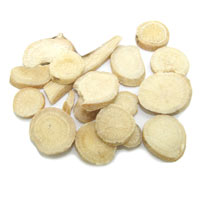
 White peony is one of the most often used herbs in Chinese herbal medicine. It is an extremely effective tonic herb and is used to purify the blood. White peony is legendary as a muscle relaxant, it relieves cramps (in the stomach and elsewhere) and reduces pain. Its antispasmodic and analgesic qualities are magnified when used with licorice root.
White peony is one of the most often used herbs in Chinese herbal medicine. It is an extremely effective tonic herb and is used to purify the blood. White peony is legendary as a muscle relaxant, it relieves cramps (in the stomach and elsewhere) and reduces pain. Its antispasmodic and analgesic qualities are magnified when used with licorice root.
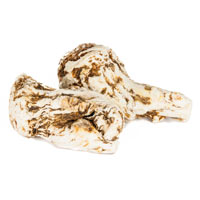
 Known as the “Queen” herb for women Dang Gui is in nearly every Pacific Herbs product. The reason for this is summed up in the Chinese medicine phrase “10 formulas, 9 angelicas.” In other words, 9 out of every 10 formulas include dang gui. (AKA angelicae) It has been this way for over 2000 years and will continue to be this way. Dang gui is a blood tonic herb. It gently helps our livers, builds, clean and purifies our blood.
Known as the “Queen” herb for women Dang Gui is in nearly every Pacific Herbs product. The reason for this is summed up in the Chinese medicine phrase “10 formulas, 9 angelicas.” In other words, 9 out of every 10 formulas include dang gui. (AKA angelicae) It has been this way for over 2000 years and will continue to be this way. Dang gui is a blood tonic herb. It gently helps our livers, builds, clean and purifies our blood.
Note: Pacific Herbs uses only organic quality dang gui.
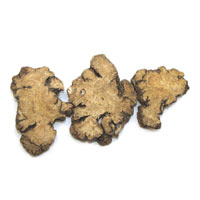
 This very popular and common herb in many Chinese herbal medicine formulas is used to regulate blood circulation. In iSleep Herb Pack a small amount is used help circulate and improve the actions of all the herbs in the formula. The entourage effect is important. Like making a cake, it’s not just the sugar, flour and butter. It’s the spices, the egg, the milk and all the other yummy things that make a cake so wonderful. Same is true of herbal formulas used for centuries. Certain herbs work better when paired together.
This very popular and common herb in many Chinese herbal medicine formulas is used to regulate blood circulation. In iSleep Herb Pack a small amount is used help circulate and improve the actions of all the herbs in the formula. The entourage effect is important. Like making a cake, it’s not just the sugar, flour and butter. It’s the spices, the egg, the milk and all the other yummy things that make a cake so wonderful. Same is true of herbal formulas used for centuries. Certain herbs work better when paired together.
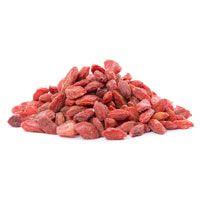
 Whether you call it Goji Berry, Gou Qi Zi, Chinese Wolfberry or Lycium it is all a power packed little red berry that has recently been discovered in the West, but has been used in Traditional Chinese Medicine for millennia. Traditionally grown on bushy vines in mountainous areas, Lycium fruit provides energy, is commonly used to strengthen the immune system and is used in our menopause supplement for its ability to improve sexual fluids and enhance fertility functions. (It also tastes great!)
Whether you call it Goji Berry, Gou Qi Zi, Chinese Wolfberry or Lycium it is all a power packed little red berry that has recently been discovered in the West, but has been used in Traditional Chinese Medicine for millennia. Traditionally grown on bushy vines in mountainous areas, Lycium fruit provides energy, is commonly used to strengthen the immune system and is used in our menopause supplement for its ability to improve sexual fluids and enhance fertility functions. (It also tastes great!)
Lycium Fruit has a high concentration of beta-carotene, vitamins B1 and B2, as well as vitamin C. It also contains eighteen kinds of amino acids and important trace minerals. Heat processing can destroy all these vitamins so be sure your Lycium berry is processed in only pharmaceutical grade facilities, like ours to preserve all its natural constituents.
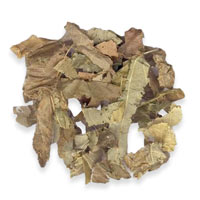
 Epimedium nourishes your yin and improves and promotes healthy bone density with trace minerals and bone growth factors. Epimedium has many research studies showing its ability to improve bone density while protecting the bones from typical degenerative aging by protecting cells with well known phytonutrients. Epimedium is also commonly known as Horny Goat weed, most likely for its powerful physical yang stimulating effects on energy. You may have heard of it as a sexual tonic but in TCM it is considered both a Yin and Yang tonic herb. We use it in our herb pack because it serves both these functions. While its important to nourish our yin while we age, women can always use supportive herbs for our yang energy, especially during peri-menopause and menopause. Epimedium is used in a famous ancient formula for fertility known as Two Immortal Pill because of its ability to tonify the liver and kidney energy and both the yin and yang. It is a commonly used herb for all menopause symptoms including, hot flashes, night sweats, mental disturbances, irritability, insomnia and palpitations. Combined with the other herbs in out menopause treatment, it has remarkable functions. The Chinese Academy of Medical Sciences places this herbs in a group of elite group of herbs that slow aging and promote longevity.
Epimedium nourishes your yin and improves and promotes healthy bone density with trace minerals and bone growth factors. Epimedium has many research studies showing its ability to improve bone density while protecting the bones from typical degenerative aging by protecting cells with well known phytonutrients. Epimedium is also commonly known as Horny Goat weed, most likely for its powerful physical yang stimulating effects on energy. You may have heard of it as a sexual tonic but in TCM it is considered both a Yin and Yang tonic herb. We use it in our herb pack because it serves both these functions. While its important to nourish our yin while we age, women can always use supportive herbs for our yang energy, especially during peri-menopause and menopause. Epimedium is used in a famous ancient formula for fertility known as Two Immortal Pill because of its ability to tonify the liver and kidney energy and both the yin and yang. It is a commonly used herb for all menopause symptoms including, hot flashes, night sweats, mental disturbances, irritability, insomnia and palpitations. Combined with the other herbs in out menopause treatment, it has remarkable functions. The Chinese Academy of Medical Sciences places this herbs in a group of elite group of herbs that slow aging and promote longevity.
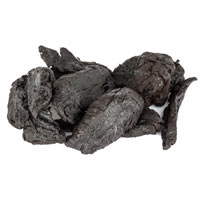
 Rehmannia supports the yin and has key nutrients. Rehmannia is one of the most important herbs used in Asian medicine to nourish the kidneys the liver and strengthen the essence. What this means is it improves adrenal function. We use the cooked form in our herb pack as a tonic to nourish and replenish the hormonal balance. TCM considers this herb a blood tonic and can be used by both men and women to protect the liver. There is also evidence that cooked Rehmannia lowers blood pressure which naturally rises as we age. Rehmannia has been known through-out the ages as “the great nourisher” because of its many anti-aging, and rejuvenating functions.
Rehmannia supports the yin and has key nutrients. Rehmannia is one of the most important herbs used in Asian medicine to nourish the kidneys the liver and strengthen the essence. What this means is it improves adrenal function. We use the cooked form in our herb pack as a tonic to nourish and replenish the hormonal balance. TCM considers this herb a blood tonic and can be used by both men and women to protect the liver. There is also evidence that cooked Rehmannia lowers blood pressure which naturally rises as we age. Rehmannia has been known through-out the ages as “the great nourisher” because of its many anti-aging, and rejuvenating functions.
Known Constituents of Rehmannia: Alanine, Arginine, Aspartic-acid, Aucubin, Beta-sitosterol, Calcium, Catalpol, Copper, D-fructose, D-galactose, D-glucose, Gaba, Glucosamine, Glutamic- acid, Glycine, Histidine, Iron, Isoleucine, Leucine, Lysine, Magnesium, Manganese, Manninotriose, Mannitol, Melittoside, Methionine, Phenylalanine, Phosphoric-acid, Potassium, Proline, Raffinose, Rehmaglutins, Rehmanniosides, Serine, Stachyose, Sucrose, Threonine, Tyrosine, Valine, Verbascose, Zinc, Vitamins A, B, C, D, amino acids, cerebroside.

